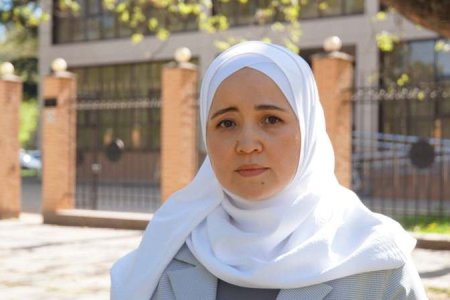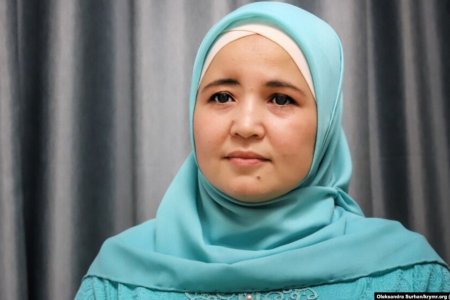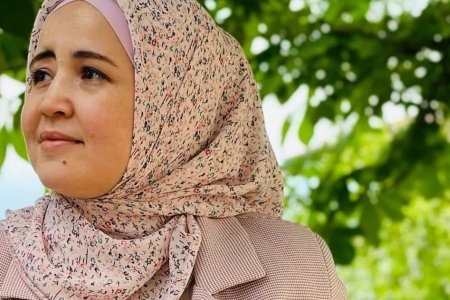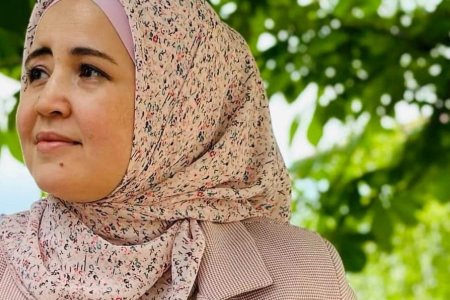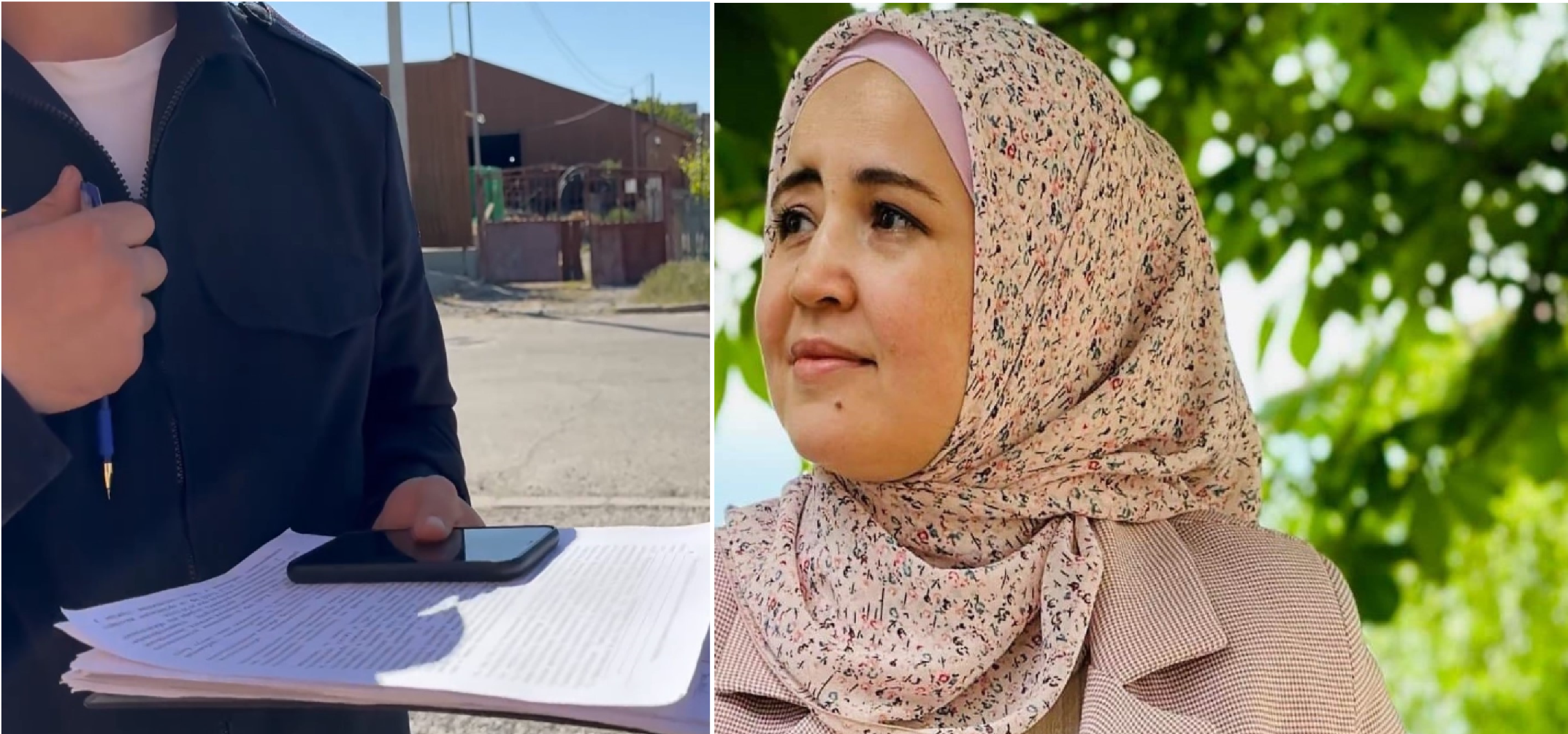
Crimean occupation ‘police’ have begun issuing formal ‘warnings’ about the inadmissibility of ‘extremism’, ‘unlawful’ gatherings, etc., with their targets all renowned Crimean Tatar human rights activists or lawyers. ‘Extremism’ is what the Russian invaders call honouring the victims of the 1944 Deportation of the entire Crimean Tatar people from their homeland, a monstrous crime recognized as an act of genocide in Ukraine. Less than three months after its invasion and annexation of Crimea, Russia banned remembrance events marking the 70th anniversary. It has, ever since, used methods of repression and harassment to prevent Crimean Tatars from gathering together on 18 May to remember this single greatest crime against their people prior to the persecution that Russia unleashed in 2014.
Enforcement officers, acting on the instructions of Russia’s so-called ‘Centre for countering extremism’, turned up on 6 May at several homes, including that of Lutfiye Zudiyeva, world-renowned human rights defender, journalist and Crimean Solidarity Coordinator, who has already faced several politically motivated prosecutions. A junior officer attempted to ‘question’ Zudiyeva, according to the document from the ‘Centre’. What this document contained is unclear as Zudiyeva, rightly, refused to answer any such questions.
That same day ‘police officers’ handed official ‘warnings about the inadmissibility of infringing the law on gatherings’ to lawyers Lilia Hemedzhy and Rustem Kyamiliev A third lawyer, Nazim Sheikhmambetov, received a ‘warning about the inadmissibility of anti-social behaviour’. It is possible that the document was identical in each case, with the ‘officers’ simply focusing on a different aspect of the same ‘warning’. The latter were, however, undoubtedly based solely on the fact that their targets are Crimean Tatars who have spoken out against and / or represented victims of Russia’s mounting political and religious persecution in occupied Crimea. In August 2022, the three lawyers, all of whom were involved in defending recognized political prisoners, were stripped of their licence to act as defence lawyers, with the pretexts in each case preposterous.
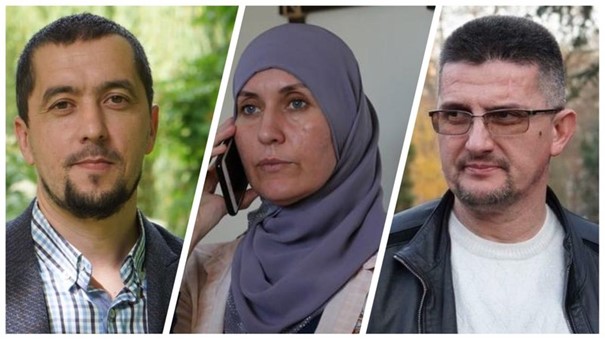
On 6 May, Seit-Osman Karaliev, a human rights activist and civic defender from Sudak, also received a ‘warning’ with his on the ‘inadmissibility of infringing the law on gatherings’. The document he was handed claimed that Karaliev is “the organizer of a mass protest” and should “take measures to remove extremist activities and infringements of public order”. If he did not reject such entirely unspecified ‘extremist activities’, the document threatened, he would face administrative or criminal prosecution.
On 7 May, Lutfiye Zudiyeva received another uninvited visitation, with the ‘police officer’ this time handing the human rights defender a document ‘warning of the inadmissibility of infringements of the law during mass protests’. The paper claimed that “the head and organizer of mass protests bear liability for observance of the norms of the law on holding mass protests.” There was nothing in the document to suggest what “mass protests” they had in mind. There were, however, nonsensical demands. The ‘officer’, Shevket Kutuzov, had been told to get Zudiyeva to sign that she had been “warned of the prohibition on covering her face during protests; on carrying weapons and other dangerous items; explosives; alcoholic beverages.” She too was threatened with administrative or criminal prosecution for any ‘infringements’. Zudiyeva did not agree to this ‘warning’ and rejected the actions of the ‘Crimean police’ as unwarranted.
Such harassment is certainly unfounded but cannot be called new. Russia began targeting Crimean Tatars and the Crimean Tatar Mejlis, or representative assembly, almost immediately after its invasion, and has used repressive measures ever since even against those wishing only to honour the victims of the Deportation. This act of genocide is out of sync with the current regime under Russian leader Vladimir Putin, its Russia’s glorification of the Soviet victory in WWII and whitewashing of Joseph Stalin. There are, however, other reasons. While Stalin’s regime deported many ethnic groups, only the Crimean Tatars were an indigenous people driven from their one and only homeland, and it was only they who were prevented from returning home for almost 50 years. Putin’s regime has gone to huge lengths to deny Crimean Tatars their status as indigenous people and to ban its self-governing body, the Mejlis. This is almost certainly linked with the fact that the majority of Crimean Tatars have clearly demonstrated their identification with Ukraine. It is they also who have faced the worst persecution under Russian occupation,
